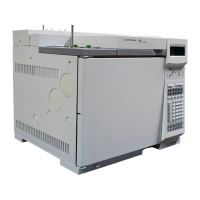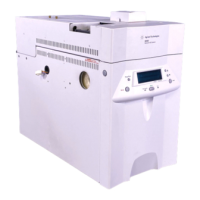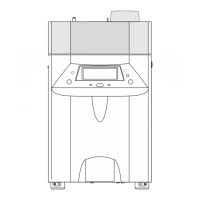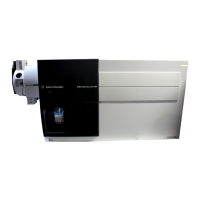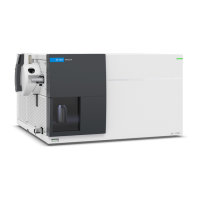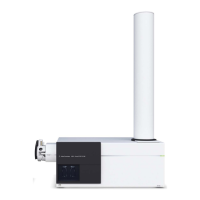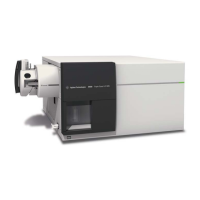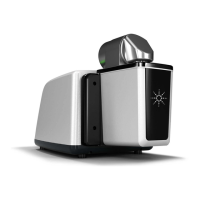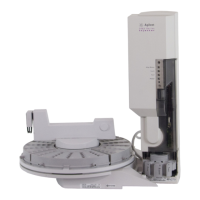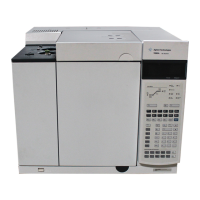Do you have a question about the Agilent Technologies 6890N and is the answer not in the manual?
Provides lists of symptoms and tasks for GC hardware, chromatographic output, Not Ready messages, and common issues.
General approach: Observe symptoms, look up in manual, check causes until resolved.
Gather info on symptoms, problem description, hardware, error messages, and tests before contacting Agilent.
Checks for plunger errors if the ALS reports a front or back plunger error, focusing on sticking or disconnected syringe plungers.
Troubleshooting steps for an FID that does not ignite, including checking the ignitor, offset, jet, and flow rates.
Steps to troubleshoot an FPD that fails to ignite, covering temperature, flow rates, column installation, and condensation.
Addresses issues with non-repeatable retention times by checking septa, leaks, carrier gas pressure, and running standards.
Troubleshooting for inconsistent peak areas, involving ALS syringe operation, leaks, and sample checks.
Guides on isolating and identifying sources of contamination or carryover in GC analysis, including blank runs and maintenance.
Solutions for poor peak resolution, including optimizing column flow, using deactivated parts, and performing column maintenance.
Troubleshooting steps when the GC fails to reach the ready state after flows and temperatures have been set.
Addresses issues where gas flow does not become ready, checking supply gas pressure, type, and for leaks.
Diagnoses slow oven cooling by checking flapper operation, decreasing temperature, and verifying flap status.
Steps to take when unable to set flow or pressure for various inlets, checking column mode and configuration.
Describes symptoms and recovery steps for a column shutdown, typically caused by carrier gas interruption.
Explains hydrogen shutdown scenarios, often due to suspected leaks, and the GC's safety response.
Addresses thermal faults where a heated zone is outside its allowable temperature range and how to recover.
Troubleshooting steps for a GC that does not power on, checking power cord and building power.
Guides on diagnosing PC-GC communication issues using ping tests, LAN cabling, and IP address verification.
Provides general advice on checking for leaks, distinguishing between external and GC leak points, and necessary tools.
Details on checking for leaks in external connections like gas cylinders, regulators, and supply lines using a pressure drop test.
Addresses leaks in capillary fittings, often caused by overtightening, and recommends re-connection procedures.
Procedure for measuring column flow using appropriate flowmeter adapter tubes for FID, TCD, uECD, and FPD detectors.
Procedure for measuring detector flows for FID, TCD, uECD, and FPD, involving setting oven temperature and turning off detector flames.
Guide on adjusting the FID Lit offset parameter via the GC configuration menu to ensure stable output.
Method to verify the FID flame is lit by observing condensation on a reflective surface near the collector exhaust.
| Brand | Agilent Technologies |
|---|---|
| Model | 6890N |
| Category | Laboratory Equipment |
| Language | English |
